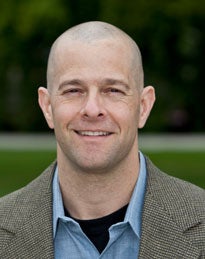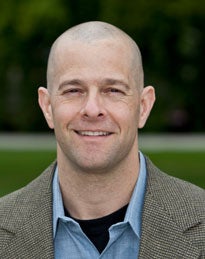 KINGSTON, R.I., April 11, 2016—Protecting our planet is a worthy mission, but it can’t be done without ensuring that any changes create a just and fair world.
KINGSTON, R.I., April 11, 2016—Protecting our planet is a worthy mission, but it can’t be done without ensuring that any changes create a just and fair world.
That’s the message from a URI anthropology and marine affairs professor who recently co-authored a paper in the journal Science with 16 other leading social scientists.
URI professor Carlos García-Quijano argues that success at creating a sustainable world depends on how fairly the burdens and benefits of sustainability are shared.
“Environmental conservation and social justice are inseparable,” says Carlos García-Quijano, who lives in Providence. “Plans for a healthier planet that don’t take into account human wellbeing and quality of life are likely to fail.”
The authors identify six other social concepts, in addition to wellbeing: culture; values; inequality; justice; power and agency—or a sense of self-determination. García-Quijano says the concepts are often overlooked when people are trying to protect ecosystems.
“We have to stop looking at human beings and the natural world as separate,” he says. “Like other living beings, humans are part of ecosystems.”
New fishing regulations, for example, could be disruptive to a community that has relied on fishing for decades to earn a living. García-Quijano argues that regulations need to consider the wellbeing of the fishermen, and others connected to the activity.
“There could be an alternative job in a factory elsewhere, but that could be a major loss in quality of life and social identity for the fishermen,” says García-Quijano. “It could be devastating for someone used to working outdoors and being his or her own boss to suddenly be working in a contained environment with a supervisor in control. That’s an example why it’s crucial to understand that any efforts to create a more sustainable world impact people and their lives.”
While these concepts are harder to quantify than, say, carbon emissions, income per capita or gross national product, García-Quijano says the social concepts are, indeed, measureable by applying insights from social scientists.
Also, scholars argue that the poorest people in the world are going to be the ones most affected by climate change, making the study even more relevant, says García-Quijano.
He is energized by the growing collaboration between environmental researchers and policy makers, and social scientists. “Our input is important for lasting environmental change,” he says. “The fact that our paper is being published in a major science journal shows that this issue is moving in the right direction.”
The paper is the culmination of three workshops hosted by the National Oceanic Atmospheric Administration’s Northwest Fisheries Science Center, and Washington Sea Grant. The primary author was Christina Hicks, a social environmental scientist at Lancaster University in England.
“We have more papers on the way,” says García-Quijano. “Some will examine how to measure wellbeing specifically, and how to engage the best available social science in policymaking.”
García-Quijano grew up in Río Piedras, a neighborhood of San Juan, Puerto Rico. He spent his childhood diving and surfing in the Caribbean, and reading about wildlife and the environment.
Social justice causes were close to his heart. “Where I grew up it was a beautiful place, but there was a lot of inequality in access to resources and services,” he says. “It was unfair.” After graduating from high school, he went to the University of Puerto Rico at Mayagüez, a highly regarded science school on the island, to study marine biology.
“I saw how fishermen were sometimes marginalized by state agencies,” he says. “Most importantly, their knowledge was often ignored in creating environmental policy. I turned to anthropology to understand the human side of marine environmental problems.”
From there, he went to the University of Georgia in Athens, which has one of the top environmental anthropology programs in the United States. He earned a doctorate in anthropology, and did his field work in the Caribbean on fisheries and human ecology.
He joined URI in 2009. Now he is an associate professor in the departments of sociology and anthropology and marine affairs. His research focuses on how culture and society influence the relationships between people and the environment.
He has studied the traditional knowledge and economic behavior of fishermen in Puerto Rico, the wellbeing of Latina teenagers in New England and the management practices of Rhode Island lobstermen. His latest project is fresh off the headlines: the evolving relationships between people and great white sharks on Cape Cod.
“Our team is studying how people are adapting and changing their behaviors in response to the sharks,” he says. “The sharks are a protected species and they’re a valuable part of the ecosystem so people can’t just go out and fish them out. They need to adapt.”
Pictured above:
Carlos García-Quijano, a URI anthropology and marine affairs professor.
Photo by Joe Giblin.

